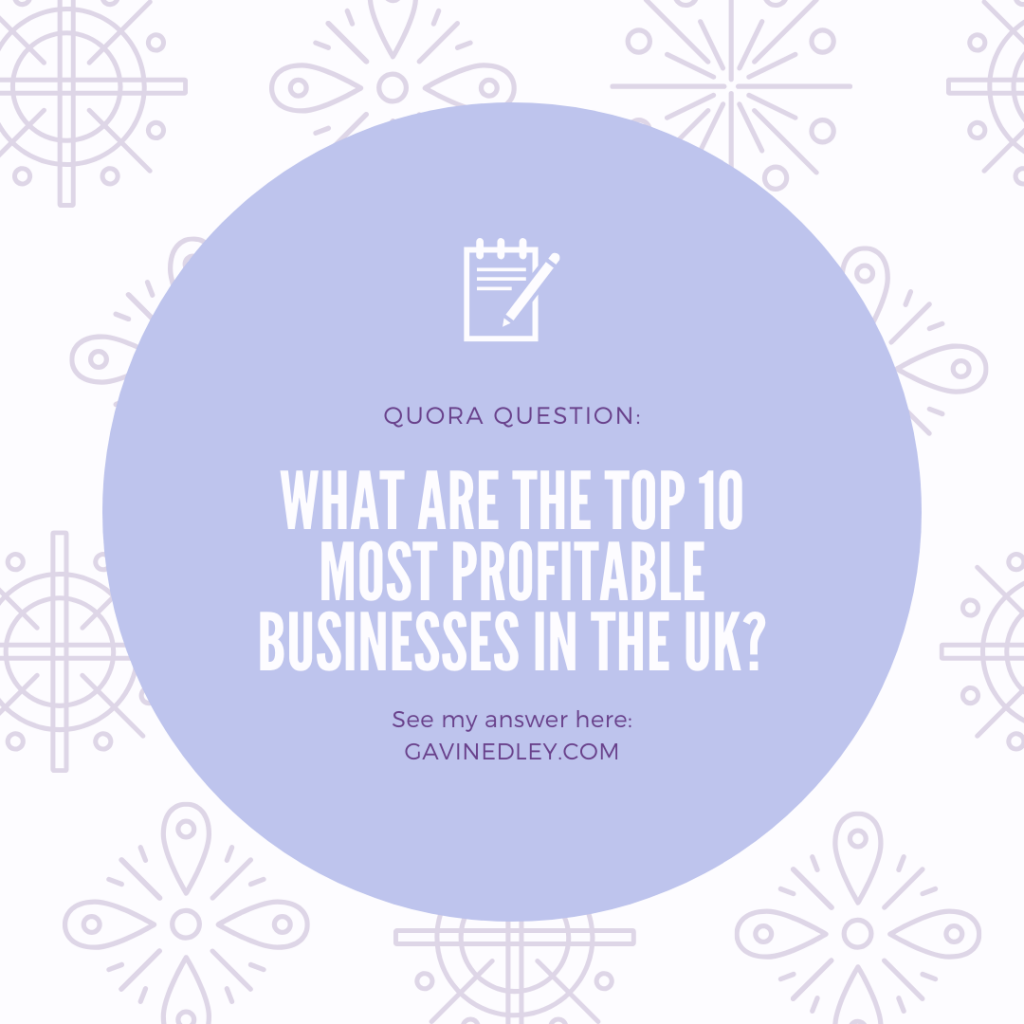
Quora question: What are the top 10 most profitable businesses in the UK?
My answer:
I won’t reel-off some ideas of what are the top 10 most profitable businesses in the UK, but here’s a simple equation that should help you identify the most profitable businesses/industries to explore.
Here it is:
Demand / Supply = Indicative profitability
So, for example, take operating system software.
Almost everyone in developed countries either owns, or has access to, a computer/laptop/tablet/smartphone. So demand for software that allows these devices to be operated in a user-friendly manner, is very high.
There are limited suppliers in this space. It differs depending on the device, but when it comes to personal computers, there are just 3 major players in the World – Microsoft Windows, MacOS, and Linux.
No surprise then that behind each one of these is a super-rich individual at (or previously at) the helm – Bill Gates, Steve Jobs, and Linus Torvald.
After some quick research (ahem, Googling), it shows there are around 2 billion personal computers in use in the World as of 2019.
So applying this to the formula gives us: 2,000,000,000/3= 666,666,666
The higher the number that this formula produces, the higher the indication of profitability in the business/industry you are examining.
This formula does have its drawbacks and flaws however.
The biggest flaw being that it’s ultimately based on the assumption that the ferocity of competition is reflected in the number of competitors operating in that space.
On the contrary, it could be that an industry only has 2 competing operators, and a potential market of over 1 billion people. But those two operators may be fiercely competitive with one another, with both employing predatory pricing techniques to kill the other off – meaning they are making a loss on each item they sell.
The above formula would still show this space to be a highly profitable area – but it would be far from the truth.
It also ignores potential barriers to entry that are highly likely the cause of an industry having such few competitors – it is not feasible that an industry is abnormally profitable, yet accessible to all (at least not in the long-term – naturally, more competitors would enter the space and push the abnormal profits Southwards as they all fight to win more market share).
And finally, it is also geared towards identifying industries where the basis of profitability is derived from scale, not simply high margins. If you are exploring an industry in which profit is largely made via healthy margins on few, high value sales, then the formula won’t look great (since the demand aspect relies on the size of the marketplace, rather than the ‘value’ of each consumer/customer).
That said, it’s still a good, simple formula to help identify profitable industries at a very high-level, early-stage analysis.
Perhaps you may be well positioned to overcome the barriers to entry that exist, or maybe you use the formula to identify industries that have yet to have been saturated with enough competition to dumb-down profitability to normal levels, and you can act quickly enough to take advantage before this happens.
But the takeaway is, if you’re looking to use this formula to figure out where you should launch your own business, it’s not a great way to begin.
Profit is great and all, but you should really be following your own interests and passions. If you’re starting your business purely for the money, you may be better getting a job. It’s a far easier way to follow the soul-crushing pursuit of more money, than running your own business.
For more sound help in finding inspiration for your own business, see my step-by-step online course Fast Track Entrepreneur.

